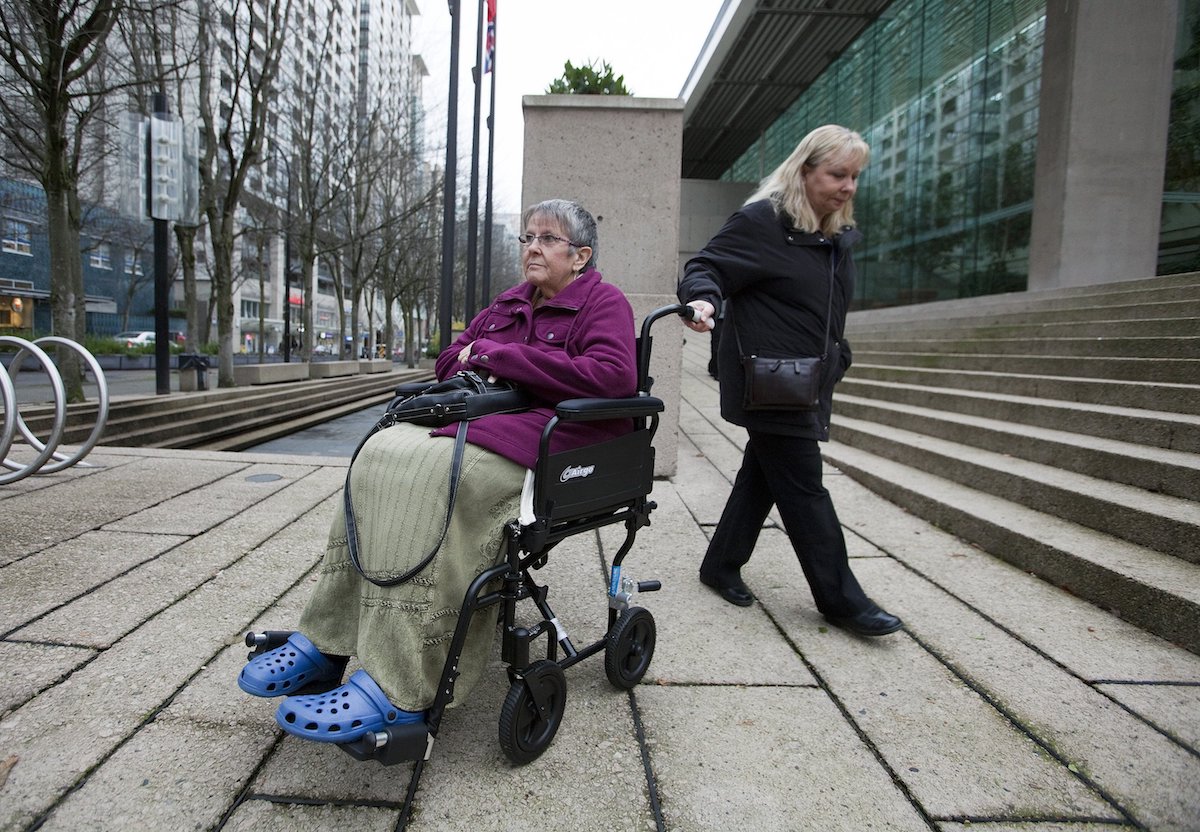VANCOUVER, British Columbia (CNS) — Canada’s Catholic bishops said the possible pressures the country’s new assisted suicide law will place on Canadians with mental illness or disabilities are “all too real, perilous and potentially destructive.”
In a statement April 8, the Canadian Conference Catholic Bishops denounced the expansion of “medical assistance in dying” — or MAiD, as it is known — to those who are not near death. They called on people of faith to pray and to lobby elected officials about the issue.
The statement, signed by Archbishop Richard Gagnon, CCCB president, said: “Our position remains unequivocal. Euthanasia and assisted suicide constitute the deliberate killing of human life in violation of God’s commandments; they erode our shared dignity by failing to see, to accept and to accompany those suffering and dying. Furthermore, they undermine the fundamental duty we have to take care of the weakest and most vulnerable members of society.”
Canada’s Senate approved Bill C-7 March 17, days after it was passed by the House of Commons. The new law expands access to assisted suicide to those whose death is not “reasonably foreseeable,” including the mentally ill, although that provision will not be enshrined in law for two years to allow a review to establish protocols and safeguards. The new law also allows people to make advance requests for euthanasia if they fear losing the ability to make that decision later in life.
In the statement, released “during this Easter season as we celebrate the resurrection of Christ and the new life we have in him,” the bishops affirmed their support for organizations that resist euthanasia, as well as for family, friends, health care workers, and volunteers who care for the sick and dying.
The bishops said they are “categorically opposed” to allowing assisted suicide in Catholic institutions and called for conscience rights for health care workers who do not want to participate in euthanasia.
In response to the new law, the bishops called for rapid access to mental health care, social support, and suicide prevention programs for people who have chronic or degenerative diseases, live alone, or live in long-term care facilities.
“Palliative care, and not euthanasia or assisted suicide, is the compassionate and supportive response to suffering and dying,” they said.
Vancouver Archbishop J. Michael Miller said: “I fully endorse the statement from the CCCB. Moreover, I am convinced that the only way now to minimize the damage to human dignity caused by such an immoral law is to work to ensure that palliative care is affordable and accessible to every Canadian.”
Disability rights groups and Indigenous leaders in Canada have also spoken against expanding assisted suicide.
In a February letter, 15 Indigenous leaders and health care workers stated, “Bill C-7 goes against many of our cultural values, belief systems and sacred teachings.”
They said Indigenous people are “vulnerable to discrimination and coercion in the health care system” and deserve protection from “unsolicited counsel” regarding assisted suicide. “The view that MAiD is a dignified end for the terminally ill or those living with disabilities should not be forced on our peoples.”
Canada amended the criminal prohibition against aiding or abetting a person to commit suicide in 2016, creating an exemption to the “offense of culpable homicide” so medical practitioners could administer a lethal injection to a dying person without facing criminal charges.






